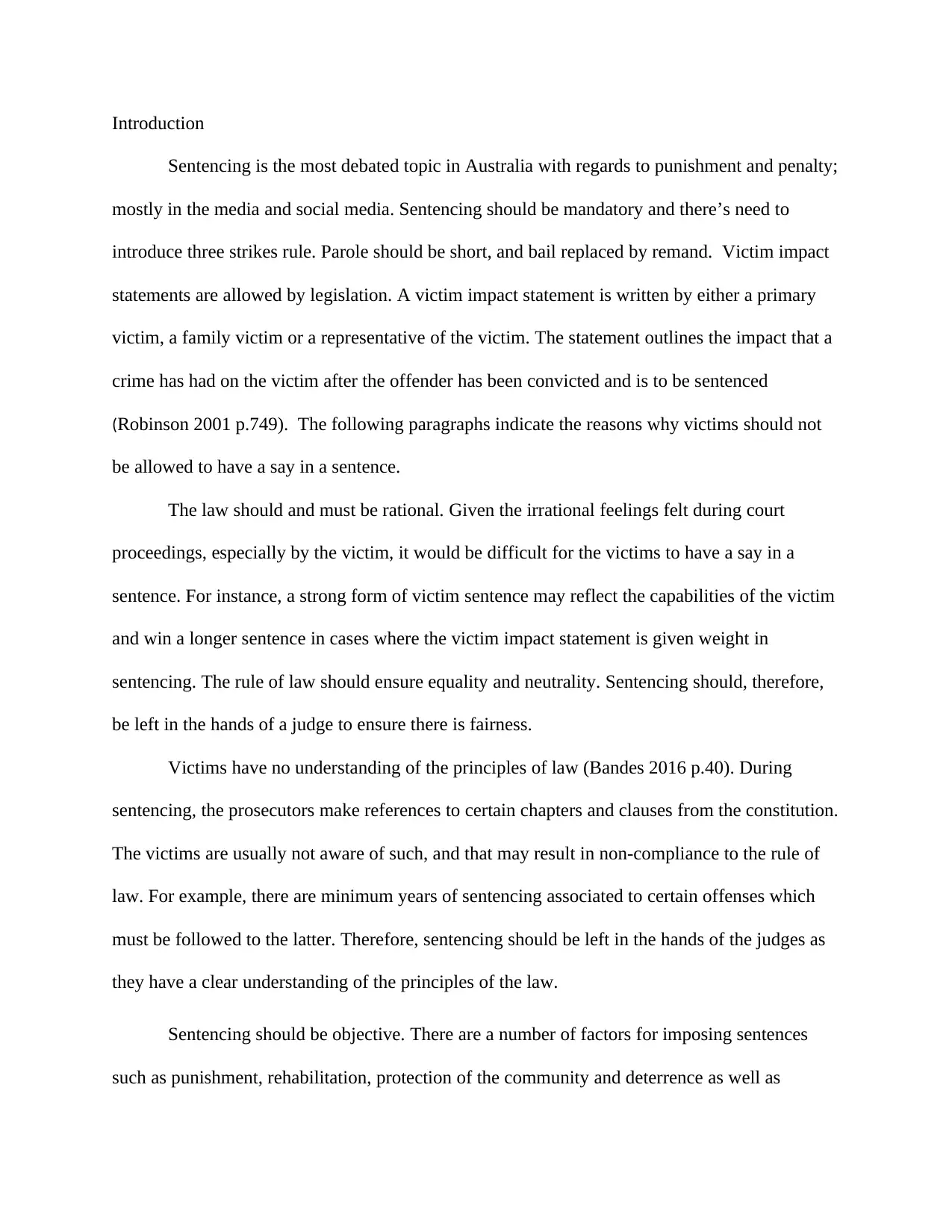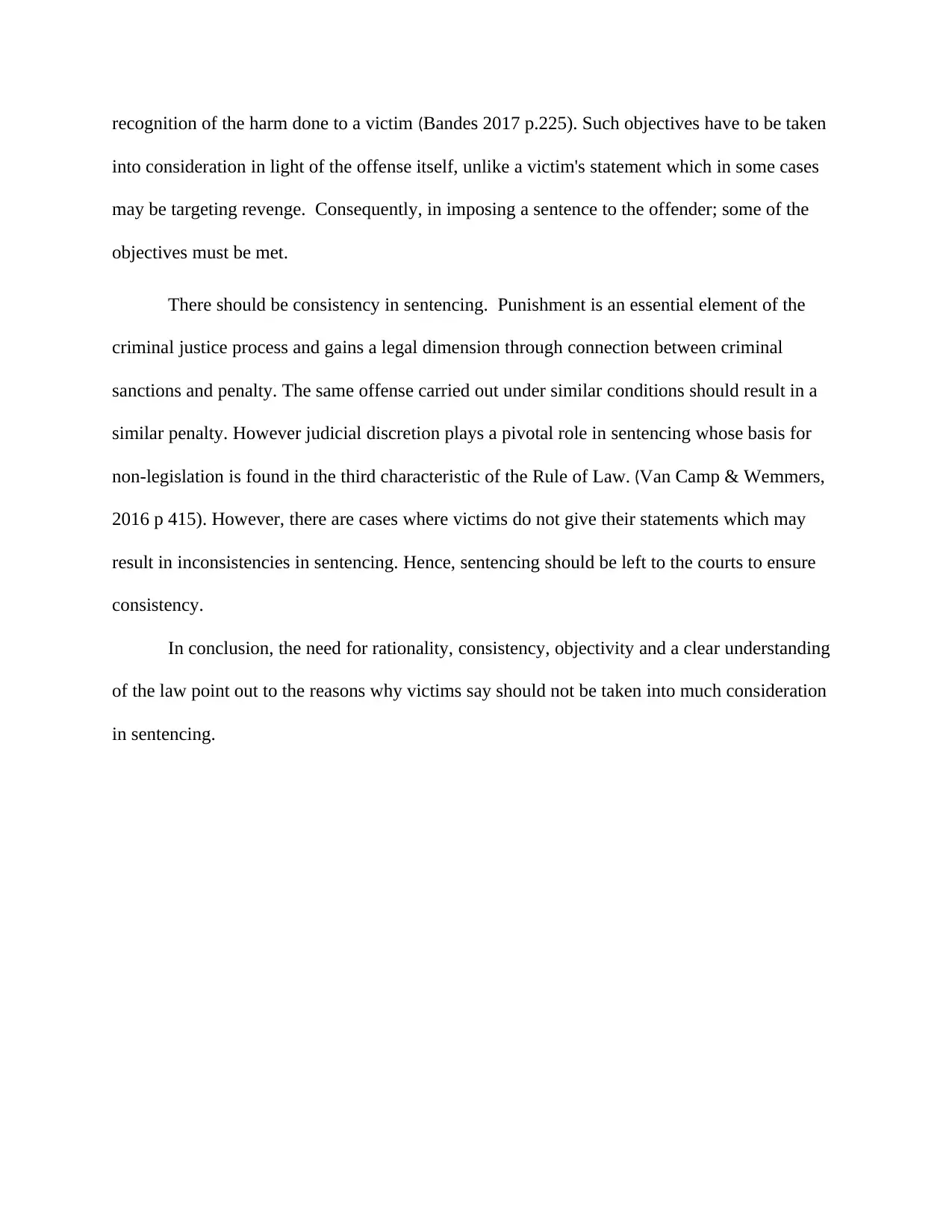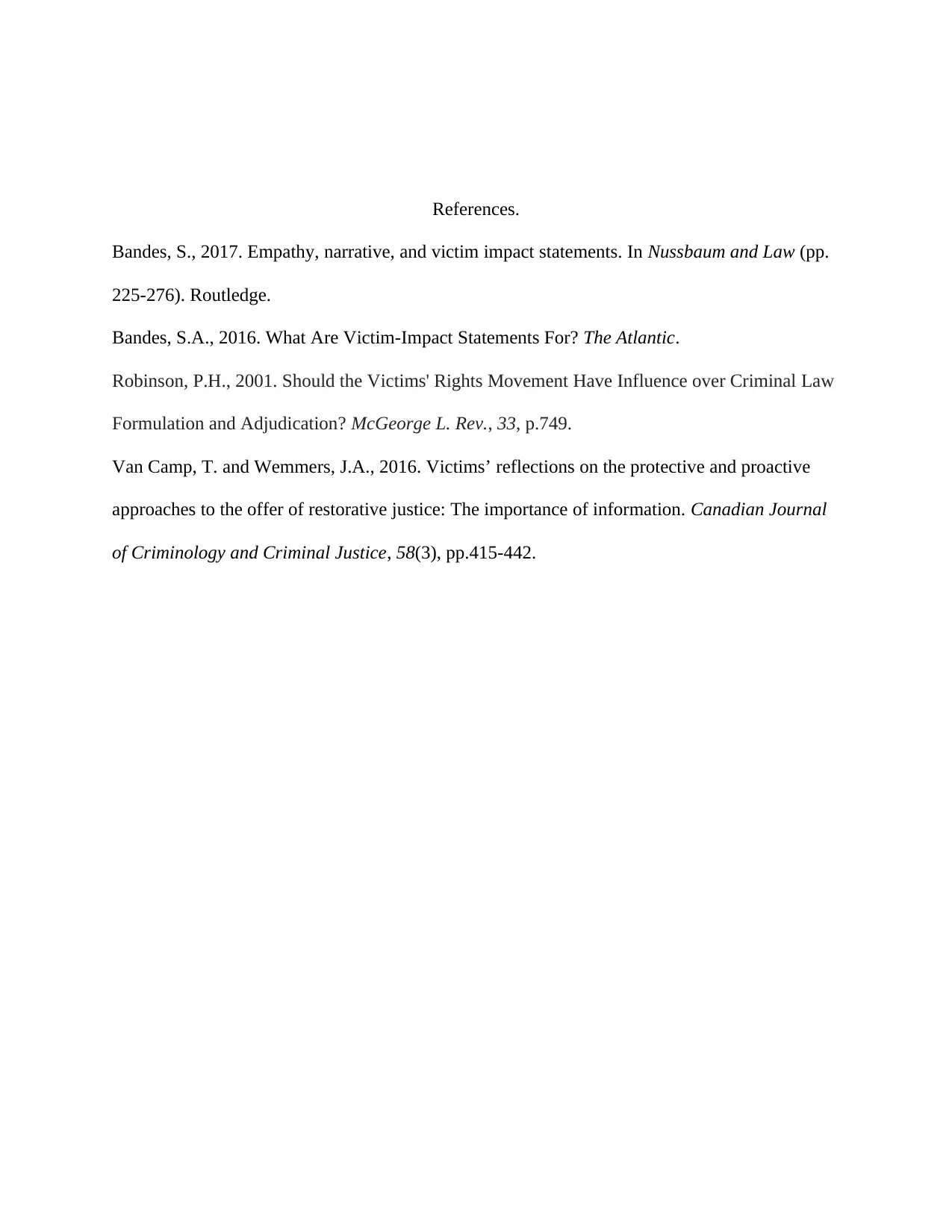Arguments Against Victim Involvement in Sentencing: A Legal Analysis
VerifiedAdded on 2022/12/26
|3
|689
|32
Essay
AI Summary
This essay addresses the contentious issue of whether victims should have a say in sentencing, specifically within the Australian legal context. The essay argues against victim involvement in sentencing, emphasizing the importance of rationality, consistency, and objectivity in the application of the law. It highlights the potential for emotional biases and inconsistencies if victim impact statements are given undue weight, and it underscores the necessity of judicial discretion based on a clear understanding of legal principles. The essay uses legal principles from the Rule of Law to explain why victim's say should not be taken into consideration in sentencing. Furthermore, the essay considers the need for consistent sentencing practices and the potential for unfairness if sentencing decisions are influenced by factors other than the nature of the offense and the offender's actions. In conclusion, the essay synthesizes these points to advocate for a sentencing process that prioritizes fairness, impartiality, and adherence to established legal standards, ultimately concluding that victims' statements should not be the primary factor in determining sentences.
1 out of 3









![[object Object]](/_next/static/media/star-bottom.7253800d.svg)